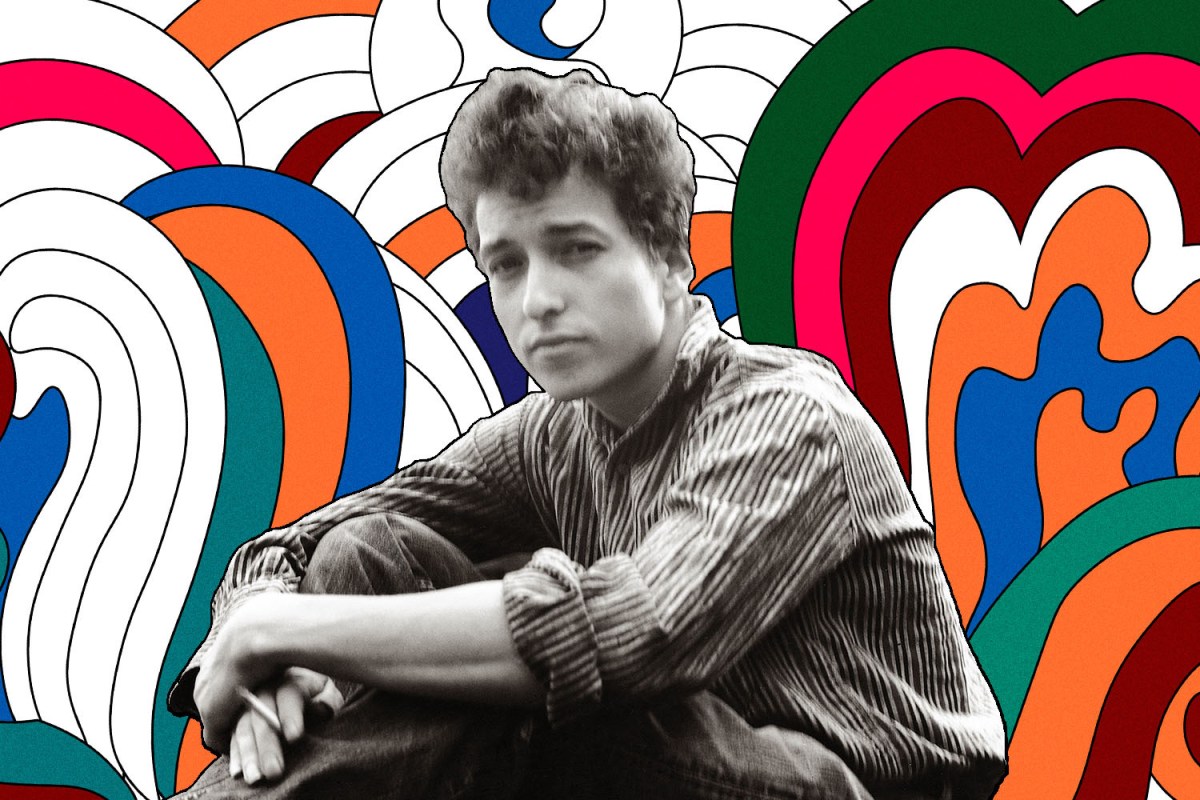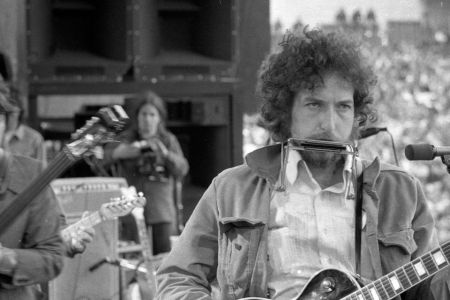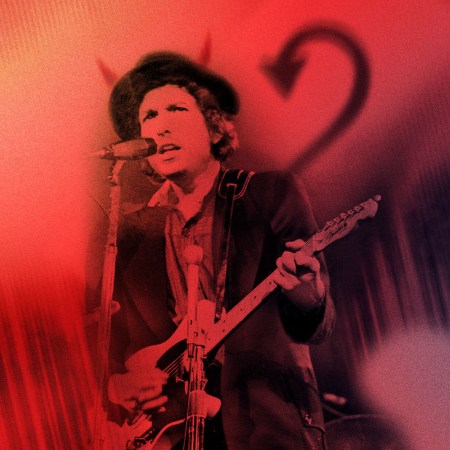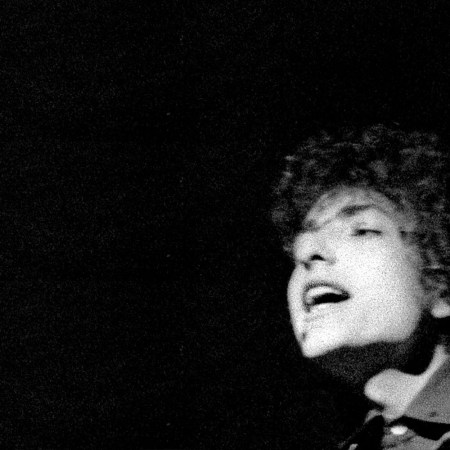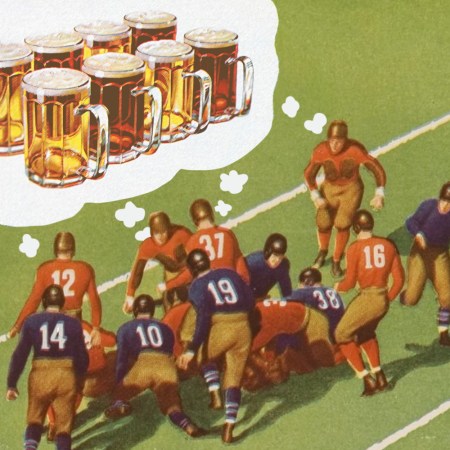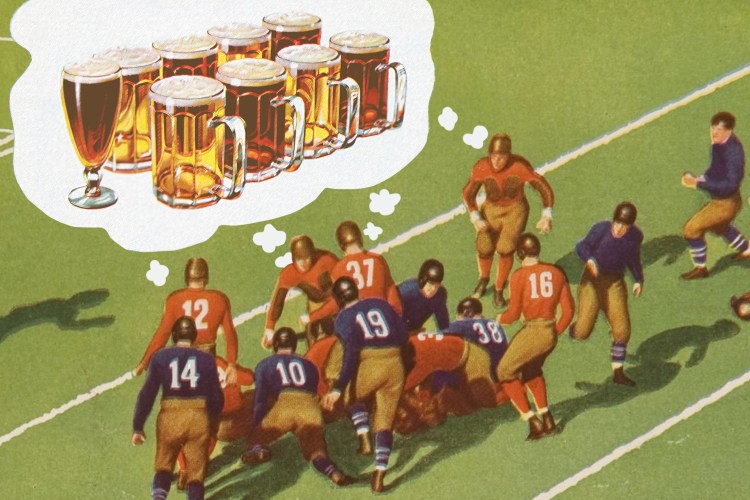Last week, Bob Dylan dropped his new book The Philosophy of Modern Song, and like most things the legendary musician does, it’s a whole lot to take in. At times, it’s downright gorgeous; at other times, it’s deeply frustrating, and through it all, it’s pretty consistently weird in all the ways we’ve come to expect from the man formerly known as Robert Zimmerman.
The book sees Dylan offering up his thoughts and observations on 66 songs by other artists. Despite “modern” being in the title, only two of the 66 songs included were released in the 21st century, and the majority of them were written in the 1950s. Only four were performed by women. So no, this is by no means a comprehensive study of contemporary music, but it is unmistakably Dylan, full of devastating turns of phrase and evocative ruminations on the moods each song captures.
Some of those land better than others. With that in mind, we’ve rounded up the most interesting lines — the sublime, the cringe-y and the downright absurd — from The Philosophy of Modern Song to examine a little further below.
The Best
“Knowing a singer’s life story doesn’t particularly help your understanding of a song. Frank Sinatra’s feelings over Ava Gardner allegedly inform ‘I’m a Fool to Want You,’ but that’s just trivia. It’s what a song makes you feel about your own life that’s important.” (“Pump It Up,” Elvis Costello)
This is probably at least partly an excuse from the notoriously cagey Dylan to continue offering little-to-no insight into his own personal life or creative process, but it does also hammer home an important truth about music. The best songs are the ones we can connect to our own lives, whether they’re soundtracking important moments or simply conjuring certain emotions that we can latch onto.
“At the point of ‘Pump It Up,’ he obviously had been listening to Springsteen too much. But he also had a heavy dose of ‘Subterranean Homesick Blues.’” (“Pump It Up,” Elvis Costello)
Having Dylan pick your song for inclusion in The Philosophy of Modern Song doesn’t necessary mean he’s going to heap praise upon you, and here he gets in a few good digs at Elvis Costello. The “too much Springsteen” thing is funny, but it’s especially delightful to see Dylan call out the fact that “Pump It Up” borrows heavily from his own work. (To his credit, Costello himself has admitted “Pump It Up” is very similar to “Subterranean Homesick Blues.” Now the real question is what does Dylan think of Olivia Rodrigo’s “Brutal“?)
“The poor man sits in his broke-down economy car in the same traffic jam for an hour as the rich man in his luxury car. Sure, the seats may be plusher, the environment more controlled, but you’re still stuck on the 405.” (“Money Honey,” Elvis Presley)
Some things become cliches for a reason, and “money can’t buy happiness” is one of those great truths that people like Dylan are constantly searching for fresh ways to express. This one’s pretty excellent.
“Ultimately, money doesn’t matter. Nor do the things it can buy. Because no matter how many chairs you have, you only have one ass.” (“Money Honey,” Elvis Presley)
Put this one on a bumper sticker.
“A serial killer would sing this song. The lyrics kind of point toward that. Serial killers have a strangely formal sense of language and might refer to sex as the art of making love.” (“You Don’t Know Me,” Eddy Arnold)
This isn’t the only time Dylan mentions serial killers in The Philosophy of Modern Song, but it is the funniest. “A serial killer would sing this song” is a hilarious critique, and his assertion that only a murderous sociopath would refer to sex as “making love” is easy to agree with.
“Bluegrass is the other side of heavy metal. Both are musical forms steeped in tradition. They are the two forms of music that visually and audibly have not changed in decades. People in their respective fields still dress like Bill Monroe and Ronnie James Dio.” (“Ruby (Are You Mad at Your Man)“, The Osborne Brothers)
You can quibble with the assertion that bluegrass and metal have “audibly not changed in decades” if you want — certainly subgenres have emerged — but they are undoubtedly two musical styles that are very deeply rooted in tradition, with specific sounds and instrumentations at their core. It’s an accurate observation, and probably the only time you’ll see Bill Monroe and Ronnie James Dio mentioned in the same sentence.
“In a real sense, the only thing that truly unites us is suffering and suffering only. We all know loss, whether you’re rich or poor. It isn’t about wealth or privilege — it’s about heart and soul, and there are some people who lack that.” (“Doesn’t Hurt Anymore,” John Trudell)
There’s something about the succinctness of that last clause — “and there are some people who lack that” — that makes it really land like a punch to the gut. We all know grief and tragedy. Some of us, like Native American activist John Trudell, whose pregnant wife and three children were killed when their house was fire-bombed, know too much of it. For most of us, those with heart and soul, it makes us capable of empathy and compassion. Those without it are the ones whose suffering gets warped into stuff like anger, fear and hate. The way Dylan articulates this so matter-of-factly, almost dismissively, is what’s so stunning about this sentence. “There are some people who lack that,” and there always will be, but they don’t really matter. On to the next.
“Way before taunts of ‘Okay, boomer’ and the calling of people with experience the pejorative term ‘olds,’ this country has had a tendency to isolate the grizzled dotard, if not on an ice floe than in retirement camps where they could gum pudding and play bingo away from the delicate eyes of youth.” (“Old and Only in the Way,” Charlie Poole)
This line starts out hilariously, with 81-year-old Dylan dropping an “Okay, Boomer” and revealing that he’s familiar with the way Gen Z refers to “olds” on social media, but it promptly knocks you on your ass. In just a few words, we go from “Haha, somebody told old Bob Dylan what the kids are saying on TikTok these days” to “holy shit, he really said ‘they could gum pudding and play bingo away from the delicate eyes of youth.” That’s some powerful imagery, and he unloads it to make an important point about the indignity of aging in this country right as he catches us thinking he’s about to make some out-of-touch old guy observation. Always one step ahead of us.
“All the self-styled social critics who read lyrics in a deadpan drone to satirize their lack of profundity only show their own limitations.” (“Black Magic Woman,” Santana)
People — especially white, male rockists who love to turn down their noses at anything on the Top 40 — love to cite Dylan’s lyrics while arguing in favor of a certain genre or era’s superiority. “The sun’s not yellow, it’s chicken” is poetry, they’ll argue, not lowest-common-denominator trash like “All I know is chase this dough and get money.” But Dylan spends most of the “Black Magic Woman” chapter of his book advocating for songs with simple lyrics; it’s about the way those words interact with the music that accompanies them, and there’s nothing wrong with a song utilizing uncomplicated (or, on the other end of the spectrum, nonsensical) lyrics as long as it sounds good. The fact that Dylan of all people — someone whose lyrics earned him the Nobel Prize in Literature — can recognize and accept this is huge. Hopefully some of those “self-styled critics” he mentions will take his message to heart.
The Worst
“And what about that little she goat that won’t go away? You want to maim and mangle her. You want to see her in agony, and you want to blow this whole thing up until it’s swollen, where you’ll run your hands all over and squeeze it till it collapses.” (“Pump It Up,” Elvis Costello)
Dylan’s attempting to explain Costello’s “angry young man” era, addressing his “Pump It Up” narrator in the second person and really delving into the rage and heartbreak behind the song’s “you want to torture her, you want to talk to her” line. But the thing about “you” is that it makes things sound more universal than they often are. When Dylan (or Costello, for that matter) say “you,” they’re talking to us, all of us, and that’s where things get murky, especially when not everyone can be trusted to discern that the words are coming from an intentionally unreliable narrator. Dylan’s clearly not actually advocating for violence against women here, but even just seeing it on the page feels unsettling. And of all the gendered insults he could have gone with, he opted for….she-goat?
“In a way this is a song of genocide, where you’re led by your nose into nuclear war, ground zero, New Mexico where the first atom bomb was tested.” (“El Paso,” Marty Robbins)
Every now and then, you read a sentence and you can just tell the writer is really impressed with himself for being clever enough to dream it up. This is one of those — writerly, melodramatic, but ultimately a huge, meaningless stretch. “El Paso” is a classic Western ballad, about a cowboy who shoots a romantic rival and steals a horse to escape, fleeing to New Mexico before returning to Texas and being shot by vigilantes and dying in his lover’s arms. It’s certainly a song about a time and a place where human life was devalued to a point where it was socially acceptable to shoot a guy for flirting with your crush and horse theft was a hangable offense, sure, but genocide? Nuclear war? We’re talking about the Wild West; atom bomb tests in New Mexico were still at least 50 years away. The murderous protagonist of “El Paso” wasn’t “led by his nose” to New Mexico by a mushroom cloud decades down the line; it just sounds cool to imagine that he was, even if it defies all logic and doesn’t actually make much of a point about the song itself.
“Marriage is the only contract that can be dissolved because interest fades or because someone purposely behaves badly. If you’re an engineer for Google, for example, you can’t just wander over to another company and start working there because it’s suddenly more attractive.” (“Cheaper to Keep Her,” Johnnie Taylor)
Does Bob Dylan…know how jobs work? You absolutely can wander over to another company and start working there because it’s suddenly more attractive. People do it all the time! Worst-case scenario, someone has to buy someone else out of a contract or, yes, “purposely behave badly” to convince a company to cut them loose like George Costanza in that one episode of Seinfeld. But people change jobs all the time — for most people, more frequently than they get divorced — and leaving a position at Google is undoubtedly less legally complicated than, say, dividing assets with an ex-spouse. But perhaps we should cut the twice-divorced Dylan a little slack here; he doesn’t exactly have a ton of experience with traditional 9-to-5 gigs.
“A couple who has no children, that’s not a family. They are just two friends; friends with benefits and insurance coverage but just friends nonetheless.” (“Cheaper to Keep Her,” Johnnie Taylor)
Pretty sure there are millions of childless couples who would beg to differ with this one, Bob. Even if we try to ignore the absolutely insane, sweeping generalization that puts heteronormative, baby-making love on a pedestal above all else, ultimately, a family is whatever the hell you want it to be. It doesn’t even need to involve a couple! A single parent raising a child is a family. Your friends can be your family. Family is something nebulous and beautiful that doesn’t need to adhere to anybody else’s rules — especially not Bob Dylan’s.
“What downtrodden woman with no future, battered around by the whims of a cruel society, wouldn’t be better off as one of a rich man’s wives — taken care of properly, rather than friendless on the street depending on government stamps?” (“Cheaper to Keep Her,” Johnnie Taylor)
Dylan drops this line while defending polygamy (more on that later), and he prefaces it by urging us to consider it “before the feminists” — a group he apparently doesn’t consider himself to be a part of — “chase me through the village with torches.” The idea, I guess, is that joining some rich asshole’s harem and essentially being treated as property, “taken care of” like a doll or a nice sports car or something, is preferable to living in poverty. But why are those the two options here? Even in 1973, when “Cheaper to Keep Her,” was released, that idea — that women need men to provide for them — was already antiquated. It’s hard to get a clear sense of what Dylan’s actually arguing here, maybe because he’s half-joking, probably because he has no idea himself, but it’s something along the lines of “if polygamy were legal, the world’s benevolent wealthy men would all simply marry all the poor, single women and feed, clothe and house them, saving them from a life of squalor.” Gee, I can’t imagine why “the feminists” might have a problem with that.
Did Painting Change the Way Bob Dylan Writes Songs?
Looking back at his 1970s work“Everybody talks about how Sam Cooke came out of gospel to go into the pop world. But there’s nobody that beats this guy. He took his spirituality with him into the pop world. You couldn’t picture this guy getting shot, bare-naked in a hotel room.” (“My Prayer,” The Platters)
This feels like an unnecessarily low blow. For one thing, we all know that performing piety in your public-facing work doesn’t necessarily mean you’re a saint behind closed doors (see: Jim Bakker, Jerry Falwell Jr., several thousand Catholic priests). But furthermore, Dylan surely knows that Cooke’s death is still shrouded in mystery and many people believe the singer was actually murdered at another location by someone else before his body was dumped at the Hacienda Motel. There’s no way of knowing for sure, of course, but what isn’t up for debate is the fact that Cooke and Platters lead singer Tony Williams — whom Dylan refers to lovingly as “this guy” — both came up during a time when white women falsely accusing Black men of rape was sadly commonplace, and the truth is it probably just as easily could have been Williams shot dead at the Hacienda. (Does Dylan know that Williams and his bandmates were arrested in 1959 and accused of having sexual relations with four underage girls, three of whom were white? They were later acquitted, but their career was never the same. Where does Williams’s spirituality factor in to our ability to picture all of that?)
The WTF
“Special thanks to my fishing buddy Eddie Gorodetsky for all the input and excellent source material, Sean Manning, Jackie Seow, Sal and Jeremy the Hot Rod Kings, all the crew at Dunkin’ Donuts, P.K. Ferguson (‘no hard and fast rules here’), and Jonathan Karp for his unwavering enthusiasm, expert advice, and encouraging me to stick with this, who said all the right things at the right time when I needed to hear them.” (Dedication page)
It’s unclear whether Dylan is referring to the employees of the chain or if he has a crew of doughnut-loving buddies that he regularly hangs out with at his local Dunkin’, but either way, it’s fun to imagine strolling in to pick up a box of Munchkins and stumbling upon one of the most beloved musicians of all time enjoying a coffee and a cruller while he uses their free wifi to work on his book. (Or do we think Dylan’s more of a Boston Kreme guy? Does he take his coffee black, or now that the holidays are upon us, will he opt for a Cookie Butter Signature Latte? There’s much to ponder here.)
“Mixed marriages, gay marriages — proponents have rightly lobbied to make all of these legal, but no one has fought for the only one that really counts, the polygamist marriage.” (“Cheaper to Keep Her,” Johnnie Taylor)
I filed this one under “WTF” instead of “worst” simply because, as is often the case with Dylan, it’s hard to tell whether he’s serious or not. He spends the entirety of the “Cheaper to Keep Her” chapter railing against divorce, and it’s difficult to parse whether he’s doing a bit — “Haha, instead of getting divorced, wouldn’t it be easier if we could just keep getting married?” — or whether he actually thinks polygamist marriages are the only ones that “really count.” Either way, there’s a not-insignificant chance that Bob Dylan is sitting around his house binging Sister Wives, and like the Dunkin’ Donuts thing, that’s kind of fun to imagine.
“You’re the tomcat with the stiff penis who pisses gold urine and brings ripples of excitement to stodgy old lives, paid your bills with bouncy checks, gives everyone who tried to help you a tongue lashing.” (“Dirty Life and Times,” Warren Zevon)
“Tomcat with the stiff penis who pisses gold urine” is a phrase I never need to read again, thank you very much.
“Sometimes people ask songwriters what a song means, not realizing if they had more words to explain it, they would’ve used them in the song.” (“Keep My Skillet Good and Greasy,” Uncle Dave Macon)
This one’s catchy, but it’s also a weird one if you stop and give it any actual thought. Of course all art is subjective and how it makes us feel is more important than what it means. That’s a fair, important point — one that Dylan harps on constantly — but the idea that songwriters are wholly incapable of providing any additional context or insight into their inspiration when discussing their work beyond what’s already in the song is simply not true. (Trust me: as someone who has spent over a decade making a living by asking musicians about their new albums, I can tell you that some are certainly better than others at talking about their work, but these days only a select few are privileged enough to flat-out refuse to do so.)
“The lips of her cunt are a steel trap, and she covers you with cow shit — a real killer-diller and you regard her with suspicion and fear, rightly so.” (“Witchy Woman,” The Eagles)
Bob. WHAT?!
This article appeared in an InsideHook newsletter. Sign up for free to get more on travel, wellness, style, drinking, and culture.
